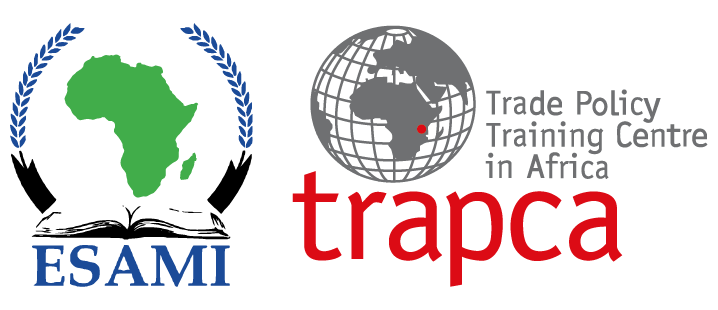Overview
Trade negotiations have been a major preoccupation of almost all African countries. Parallel negotiations have generally become a defining feature of these negotiations. Despite lean structures that characterize most African countries’ administrations in charge of trade policy and trade negotiations, trade negotiations at bi- lateral, regional, at RTA and multilateral levels continue to preoccupy countries as they seek to open markets and deepen their trade ties. This course aims to build competencies and capacities of trade negotiators and further impart requisite skillset that characterize a successful trade negotiator.
The course on trade negotiations and cooperation introduces participants to the art and science of trade negotiations. It covers key features of international relations and principles that broadly de ne negotiations in their broader perspectives. The course delves deep into political economy questions that characterize trade negotiations at multilateral, regional, continental, RTA, bilateral and domestic levels. At a theoretical level, the course delves into the conceptual and implementation aspects of trade negotiations. The practice of negotiations and its attendant techniques and tactics, the types of negotiations, as well as purposes of the various types of negotiations are key features of the course. The course looks into the psychological aspects of negotiations and behavioral patterns that each negotiator must identify in any set of negotiations.
It further considers negotiation strategies and methods, phases of negotiation, cross cultural nature of negotiations, key players in trade negotiations, subject matter for trade negotiations and typology of players in trade negotiations and related rational for each of these aspects. Negotiations skills as a key ingredient to successful negotiations are considered in great depth. Moreover, communication methods in trade negotiations, characteristics of an effective negotiator, processes in trade negotiations diplomacy are important elements considered by the course.
Trade policy formulation process and the efficiency – effectiveness dichotomy in trade negotiations as well as development of a negotiations toolbox are hands on dimensions provided by the course. To this end, the course draws from real life experiences of faculty members in the context of bilateral negotiations, regional economic communities and multilateral trading system. This is achieved through negotiations simulations and role-playing scenarios. This ensures that participants do not only cultivate conceptual and theoretical aspects of trade negotiations but also application aspects from the African continent and other parts of trade negotiations. The course is facilitated by the world renowned trade negotiations practitioners.
Expected training outcomes
Developing a negotiators toolbox akin to trade negotiations.
Fees and other costs
The fee for the programme will be payable in US dollars and will cover tuition, presentation material and other documentation. It also includes lunch and refreshments during each working day. Discounts are available for every 2 or more delegates registered from the same institution.
Course Fee: $2500
Venue: Zanzibar. However, subject agreement with clients, the course may be offered in any of the following venues: Kampala, Uganda, Mombasa, Kenya; Nairobi Kenya; Livingstone Zambia; Arusha, Tanzania and Zanzibar.
Dates: 24-28 July 2023
How to apply
Prospective participants should apply by filling the form below.
Inquiries
For any inquiries, kindly write to admissions@trapca.org
